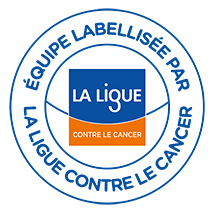iGReD - Molecular Pathophysiology of Adrenal and Endocrine Tissues (MOP@ET)
Published on June 8, 2021 – Updated on October 26, 2021
Through the development of genetically engineered mouse models, our team deciphers the molecular mechanisms resulting in development and progression of adrenocortical carcinoma, a rare cancer of the adrenal gland.
Lab
Institut de Génétique Reproduction et Développement - iGReD
INSERM U1103 CNRS6293 Université Clermont Auvergne
Centre de Recherche et de Biologie Clinique - CRBC
28, Place Henri Dunant
63000 Clermont-Ferrand

